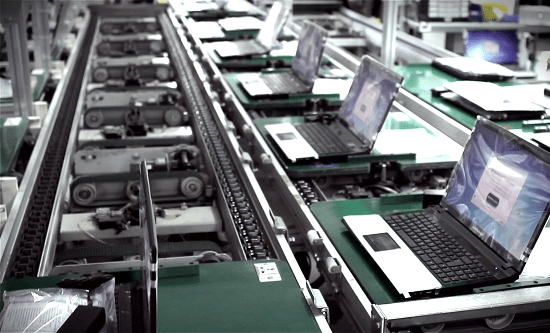
A consistent theme of British ruling class propaganda over the past few years has been the espousal of the digital tech services sector. In his 2018 budget statement, Chancellor Phillip Hammond said he aimed at ‘reinvigorating capitalism for the digital age’, following that up by saying ‘I want Britain to be one of the great winners of the technological revolution’. Both the Conservative and Labour manifestos in the 2017 General Election pledged a similar level of dedication to British technology companies. Labour said that they would appoint a Digital Ambassador to promote investment in tech and the Conservatives promised similar results via a new institute of technology. Both parties make it clear in their manifestos that they want the growth of this element of the British economy to go further.
The tech services industry employs two million people in Britain, often in workplaces outside the major cities, saving money on land prices. 54% of these workers were born outside of Britain. Like health care workers, tech workers trained at the expense of other countries are more attractive to British capitalists. This is a form of imperialist parasitism. When in 2016 the Conservative Party announced that it would crack down on businesses hiring from outside the EU, there was widespread opposition from the tech sector. Investment firm Seedcamp’s co-founder Resma Sohoni said ‘Rudd’s proposed crackdown on work visas could have a hugely damaging impact on the UK and its position as one of the world’s leading digital economies.’ The government subsequently announced that it plans to reverse the cap on ‘skilled migrants’. Many British tech companies have overseas offices as well, bolstering their British-based workforce with people working in other countries, in particular Eastern Europe and South East Asia. They can employ people who will accept lower wages and poorer working conditions with the same or similar qualifications.
Most of the work performed within Britain is in software, coding programmes or maintaining networks and databases. The hardware that this software runs on (servers, computers, smartphones etc.) is produced in countries such as China, India, Vietnam and South Korea where low wages and poor working standards allow British companies to buy the hardware cheaply. British companies then get the lion’s share of the final sale price of a system, and therefore of the profits. No wonder the government sees the need to develop this sector.
Jacob Dexter




